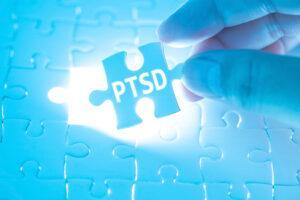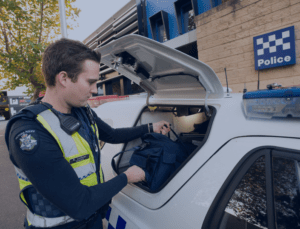By nature, police work exposes officers to traumatic events where they are either distressed or horrified on a regular basis. This can also occur where officers are in situations where their own safety is impacted and where threats of harm or death may occur.
Routinely witnessing such horrifying events or being in situations of potential physical harm or death can accumulate to the degree that the sympathetic nervous system (fight, flight, freeze) becomes wired in a way where the body is continuously on alert. At the same time hormones are activated to protect and preserve life by enabling the fight, flight, freeze response whereby adrenaline and cortisol are released.
This natural response when triggered over an accumulation of trauma exposure or from a single traumatic event can interfere with the neuroscience of the brain which in turn effects every part of the human body. Feelings of being ‘wired’ or on constant alert is often the first sign that something is not right however it’s generally close family or friends who pick up the first signs of PTSD
Other signs may appear when triggers of the event flash into thoughts and vision of the scene or event, this may include smells, reminders and similar environments so it’s important to notice when this happens in order to understand what your triggers are and how this makes you feel.
It’s imperative to acknowledge these signs and seek advice, support and care at the earliest opportunity as the longer the accumulation of trauma in the body the more complex it may become. Having a diagnosis of PTSD is not necessarily the end of your policing career as it was once thought to be. There are many tools, strategies, programs and educational support that can support you to regain your equilibrium and find peace, happiness and health to support you in continuing your career or to assist you to transition into a new and exciting career path.
Seeking advice, support and assistance via your GP will give you the opportunity to discuss your concerns and if necessary to be referred to a trauma informed clinician who understands police culture such as a psychologist, psychotherapist, or psychiatrist. Likewise, contacting your state jurisdiction employee assistance program or chaplaincy service may assist with counselling, advice and support. For those who have long term chronic PTSD symptoms an immersive stay program such as the Moving Beyond Trauma Program at the Quest for Life Foundation in Bundanoon may be helpful along with peer to peer support via the Police Post Trauma Support Group.
To identify when indicators of PTSD may be an issue and it might be appropriate to seek further assistance the following list of symptoms and signs can be helpful to look out for:
- Constant intrusive reminders of traumatic events
- Avoidance of places, foods, people, smell or sights that remind you of the traumatic event
- Difficulty controlling your reactions
- Numbing out intrusive thoughts by using alcohol, drugs or other addictive behaviour
- Pushing yourself to the limit to avoid thinking about the trauma
- Difficulty getting to sleep and staying asleep
- Loss of appetite or eating for comfort
- Nightmares and night terrors that wake you from a deep sleep
- Feeling numb or disconnected
- Isolating and avoiding distressing reminders of the event
- Feelings of impending doom
- Thinking the worst in all situations
- Blaming yourself with negative thoughts
- Feelings of hopelessness and helplessness
- Feeling anger, rage or a sense of being out of control
- Loss of enjoyment in activities or hobbies that you once loved
- Poor concentration, easily startled and feeling jumpy
- Feeling a sense the world is not a safe place
- Losing interest in sex and intimacy
- Feeling unable to laugh or see the humour in anything
- Feeling nauseous or sick at the thought of attending the workplace
- Excessive exercise to avoid feelings or thoughts

 Exit
Exit















